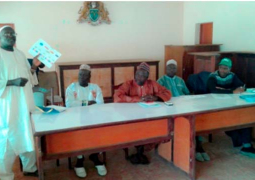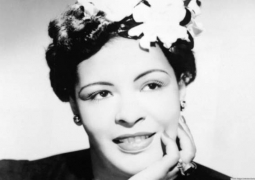Fafa E M'Bai former Attorney General and minister of Justice and a senior member of the Gambia Bar Association has stressed that arrests must be justified, noting that accused persons cannot be detained at the whim of the police.
"An arrest must be justified; the accused person cannot be detained at the whim of the police and must be formally charged; the interrogation of the accused must be carried out fairly; he may be entitled to bail, and he has the right to be defended by an advocate," he said.
M' Bai was addressing a cross section of state prosecutors at the AG Chambers over the weekend while presenting a paper on "Advocacy and the Litigation Process" at a two-day training held at the Legal Capacity Building Office in
He said the rules of criminal procedure embody the principle that a person is innocent until he is proven guilty, but balances this interest against the need to grant the police the appropriate powers to enable them to act effectively in apprehending a suspect, and in gathering information.
The effect of this balance, he added, is evident in various provisions. He noted that for instance, the powers of search and seizure cannot be exercised indiscriminately.
The police have no power to enter premises in order to investigate crime (as opposed to effect arrest) except under a search warrant. We all remember Lord Denning in Ghana V Jones (1970) 3 ALL ER 1700 when he said:
"The poorest man may in his cottage bid defiance to all the forces of the Crown. It may be frail.... Its roof may shake.... the wind may blow through it.... The storm may enter... the rain may enter.... but the King of England cannot enter.... all his forces dare not cross the threshold or ruined tenement."
According to Mr. M'Bai, the rules which govern the trial itself ensure that the proceedings are conducted as fairly and efficiently as possible. "The pre-trial criminal process enables both the prosecution and the accused to be prepared and ready for the trial. To this end, the rules require charges to be drafted properly, that a sufficient case be made out against the accused before he is committed for trial, that the prosecution gives notice concerning certain statements, reports or depositions which it will be relying on at trial, that the accused gives notice of his alibi defence if this is pertinent and so on," he stated.
In his view, no advocate, no matter how gifted, can really succeed in representing his clients unless he has a firm foundation in the rudimentary aspects of evidence and procedures, has grasped the facts and applicable principles of law, has developed a well- reasoned approach or strategy which will govern his conduct of the case, and is able to utilize the necessary methodology so as to make his speeches to the court compelling, his cross examination of witnesses purposeful and his presentation of exhibits effective.
The characteristic of the litigation process, he further noted, include the nature and function of the law of evidence and procedure; the attributes of common law adversarial system; the nature of the judicial process; the role of ethics, and the standards which are required of the advocate.
"The law of evidence is primary as there is no purpose in taking a matter to trial unless there is evidence on the issues which will enable the court to come to a decision," he added.
In a criminal trial, senior counsel M' Bai stated, the accused does not "settle". "He can either plead guilty to the offence with which he was originally charged or agree to plead guilty to a lesser offence if prosecution offers this opportunity. The prosecution may decide not to prosecute at all after certain representations are made on behalf of an accused," he revealed.
However, he added: "it is not a question of mutual bargaining as between the parties in a civil case. The prosecutor has complete discretion in the matter which he may exercise if he deems it, in the circumstances.
Fafa M’Bai continued: "the distinction between the court exercising its civil and criminal jurisdictions is also apparent. The court is involved in the civil pre trail process to the extent that the parties exercise their initiative in raising issues for determination. The criminal court has a more independent and active role."




